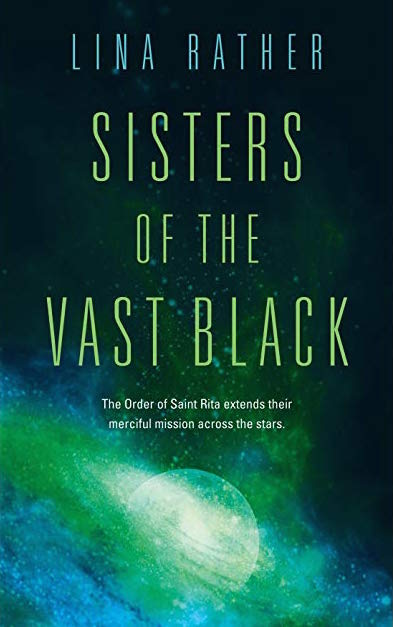You know why you should read Sisters of the Vast Black, the space opera Lina Rather condensed into a novella? Because it’s Firefly with nuns.
Well, more specifically it’s Serenity with nuns, not least because it’s a self-contained narrative. And okay, there’s less humor and hijinks. But they have equal amounts of heart, daring, and tragedy. They both feature far-flung settlements, a nefarious central government, a deadly mystery, and an older mentor who is not what they first seem.

Also, the nuns love their ship as much as Mal loves Serenity, although that may be easier to understand as the ship in their case is actually a living being. Our Lady of Impossible Constellations is a bioship constructed around a kind of giant interstellar squid. The sisters are particularly devoted to its care, and discover that it has unexpectedly entered its breeding season. The sisters face an awkward theological choice about whether to allow the biological urges of their ship, a decision that intersects with several other dictates of their mission of far-space ministry. Matters of theology and obedience also rear their head when they receive a call from a fledgling colony that also needs them, and when they receive conflicting directives from Rome. And in the midst of all this there’s a beautiful, quiet love story woven in, too (and it’s queer!).
If religion’s not your thing, fear not: there is no proselytizing and very little esoterica. Do you know what a nun is? Great, you’re set. The themes are ones that anyone, Catholic or not, can appreciate: innocence versus experience, needing to make good on past mistakes, and the terrible risks of doing the right thing. Each is marvelously and extensively explored despite this book being only 155 pages long, an amazing feat. This is mostly because Rather is such a dab hand at character work, with each sister standing in for unique viewpoints as well as being fully fleshed out as an individual. There’s even a character who barely speaks and is said, in passing, to be a bad fit for the order—yet even she gets a character arc. That’s impressive as hell.
As a whole, it’s a wonderfully complete narrative, with every thread brought together and tied off to make a perfect little tapestry of a book. There are no extraneous details, no wasted space. Firefly was cut short, but this just is short—and absolutely perfect in its brevity.
